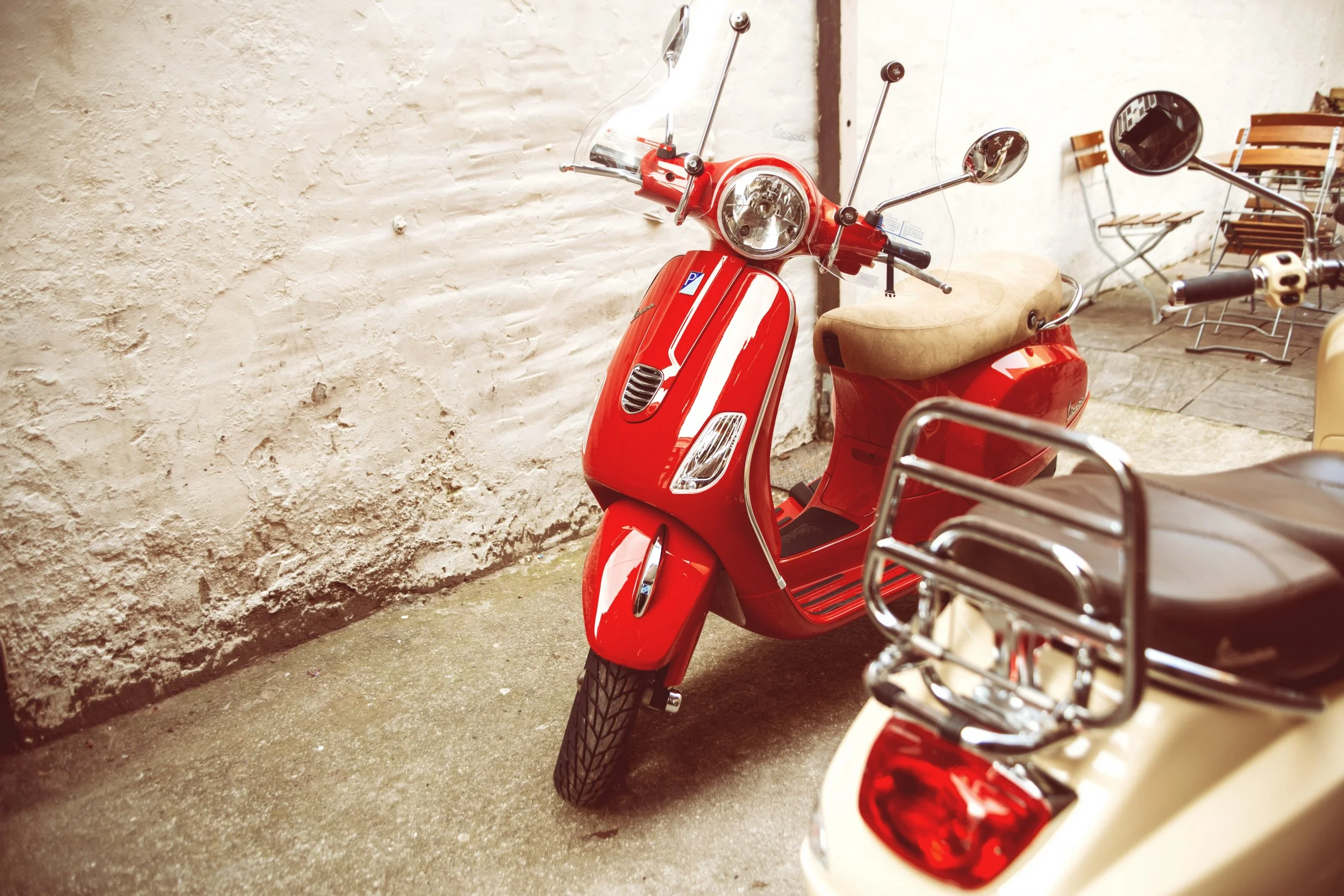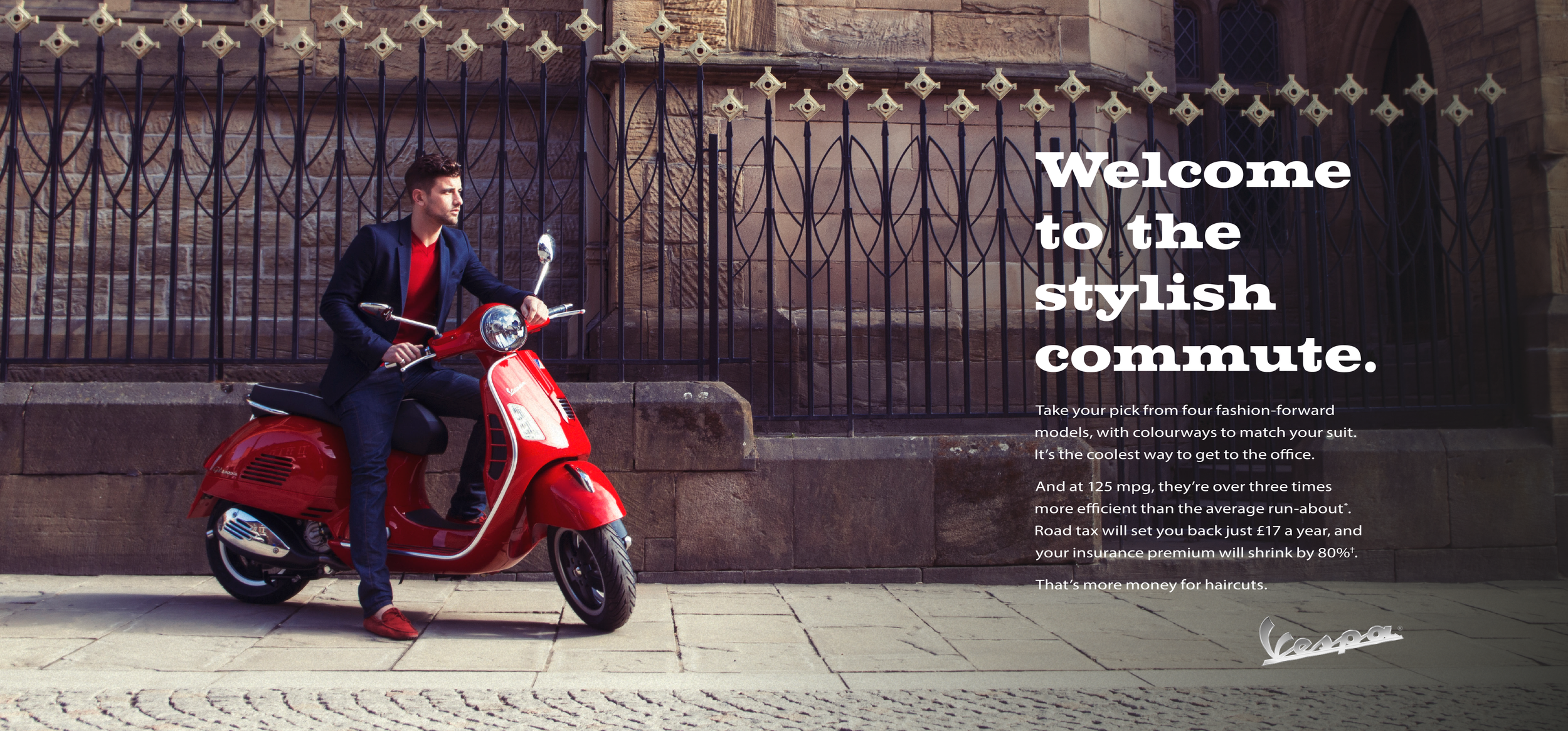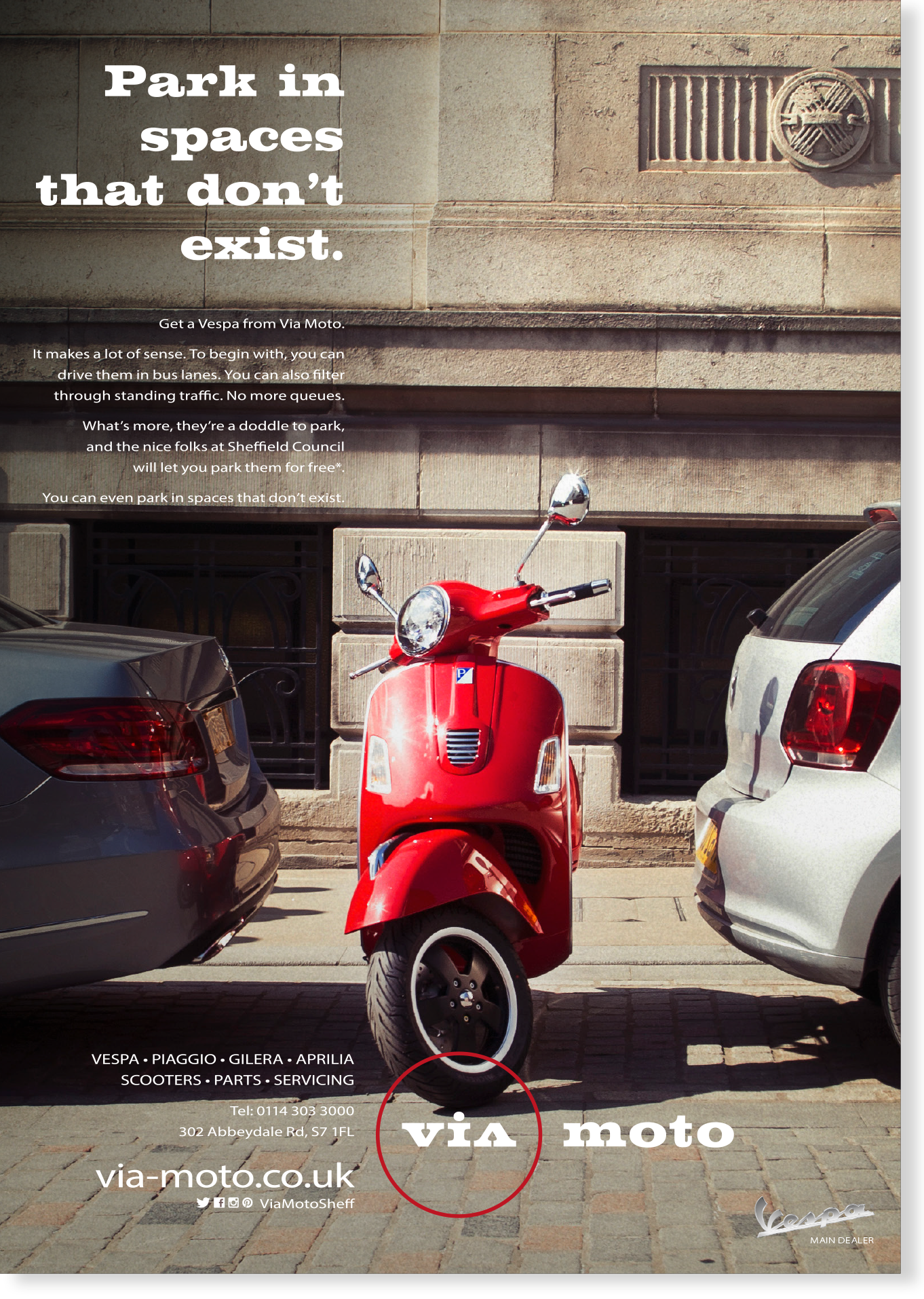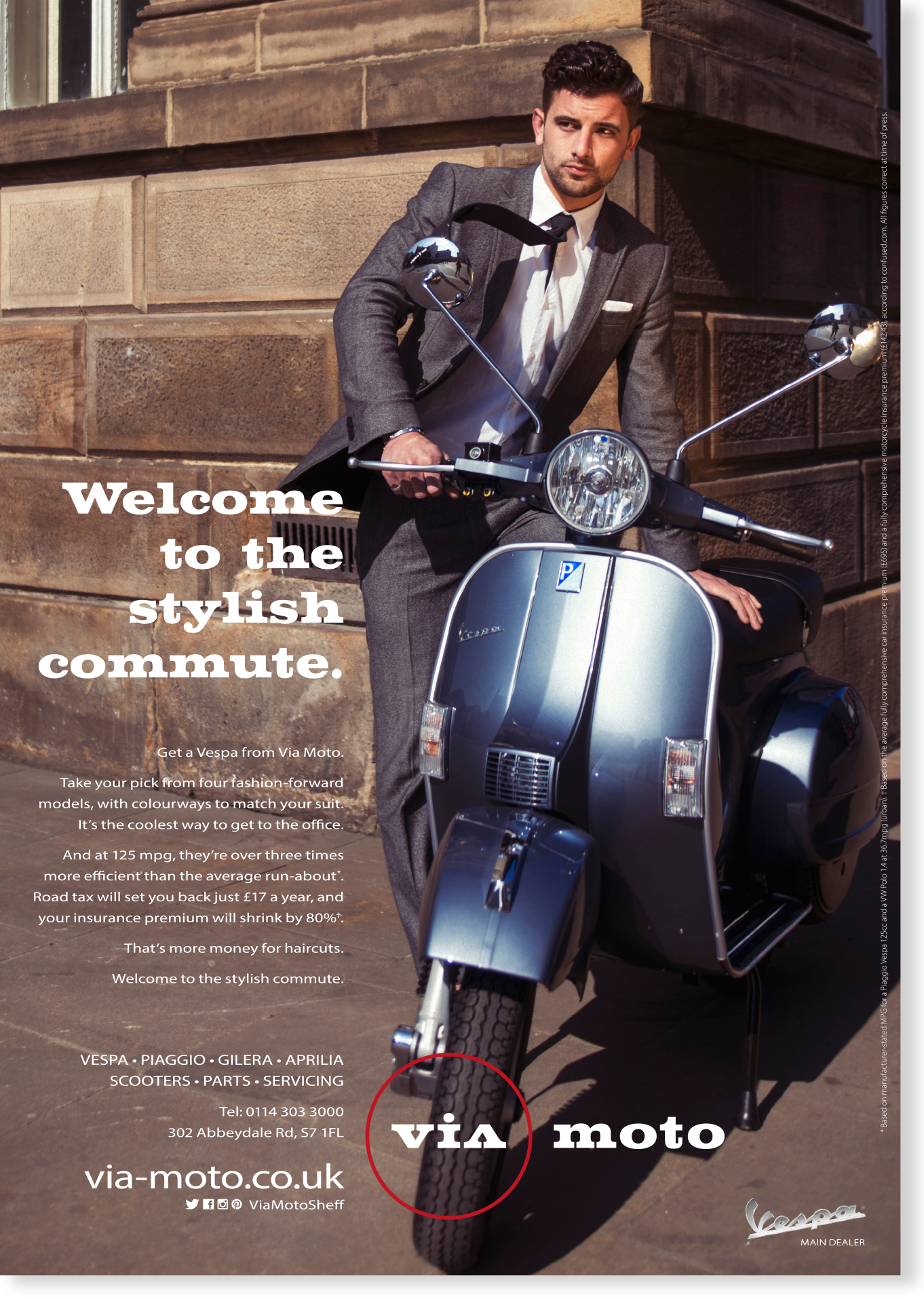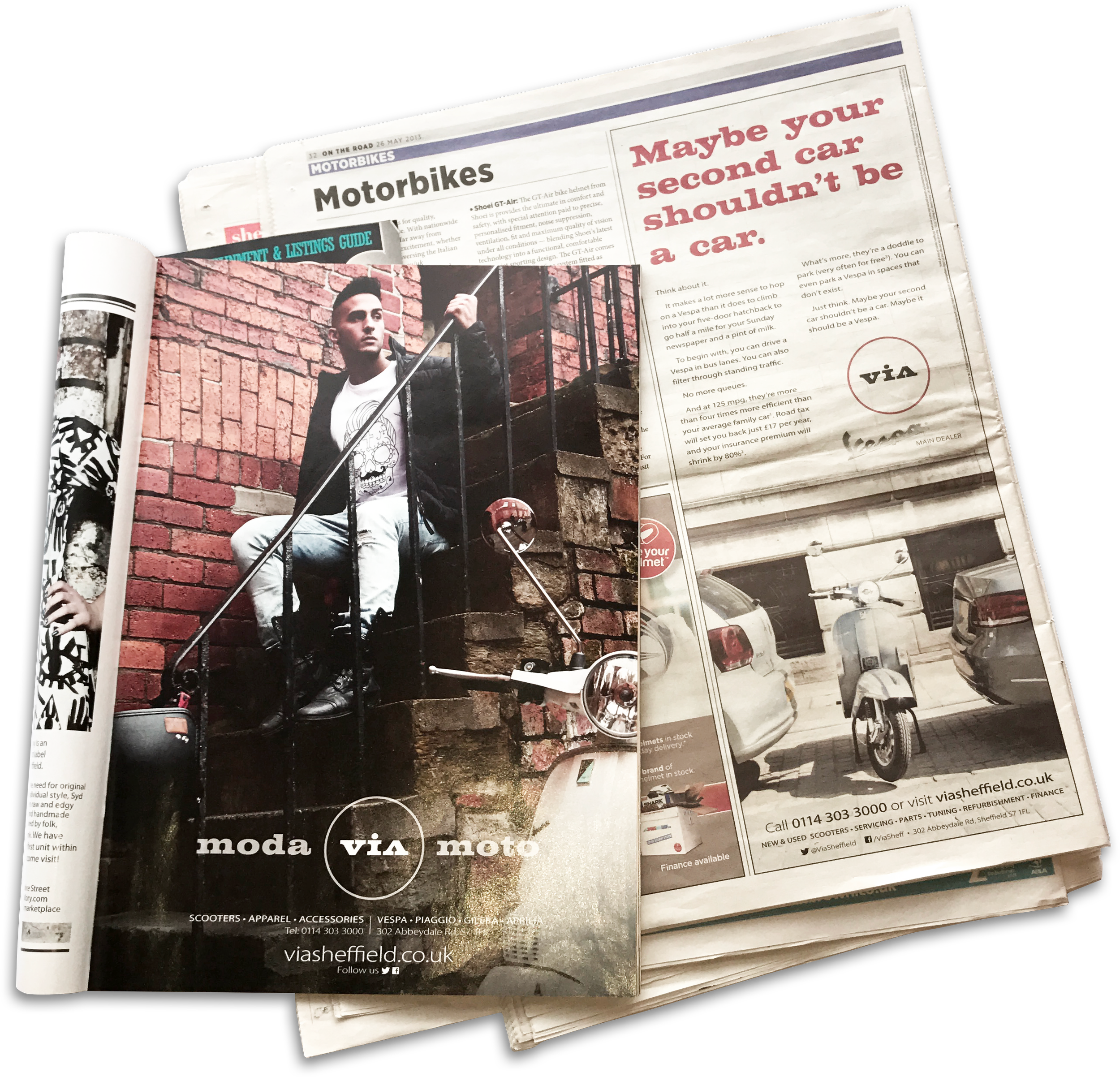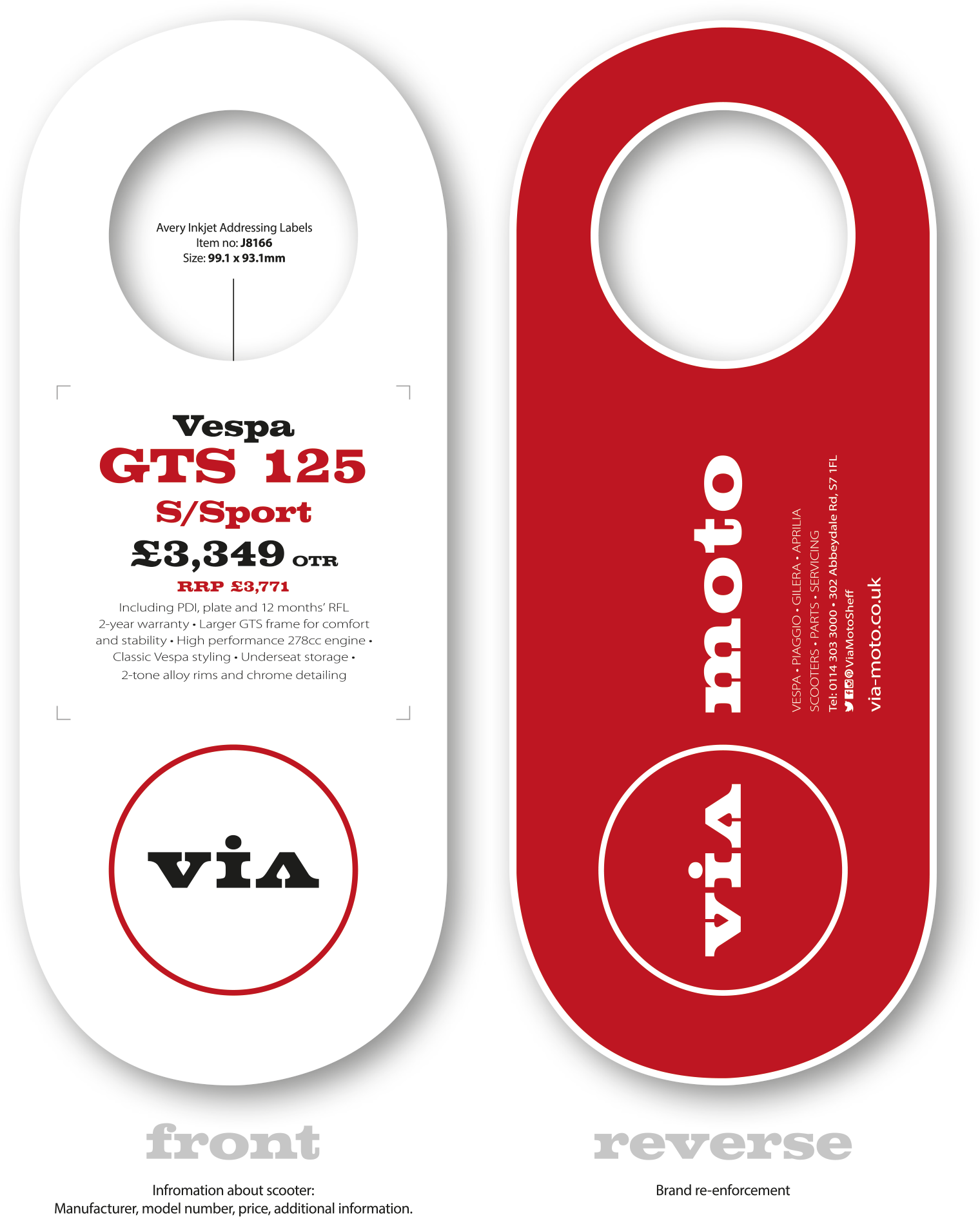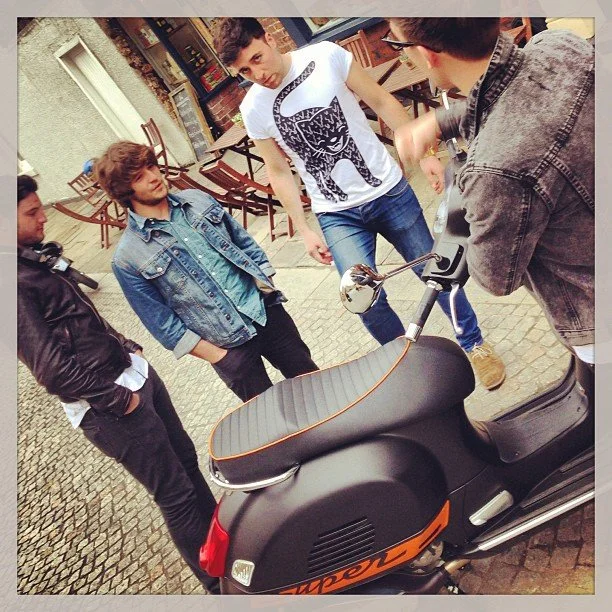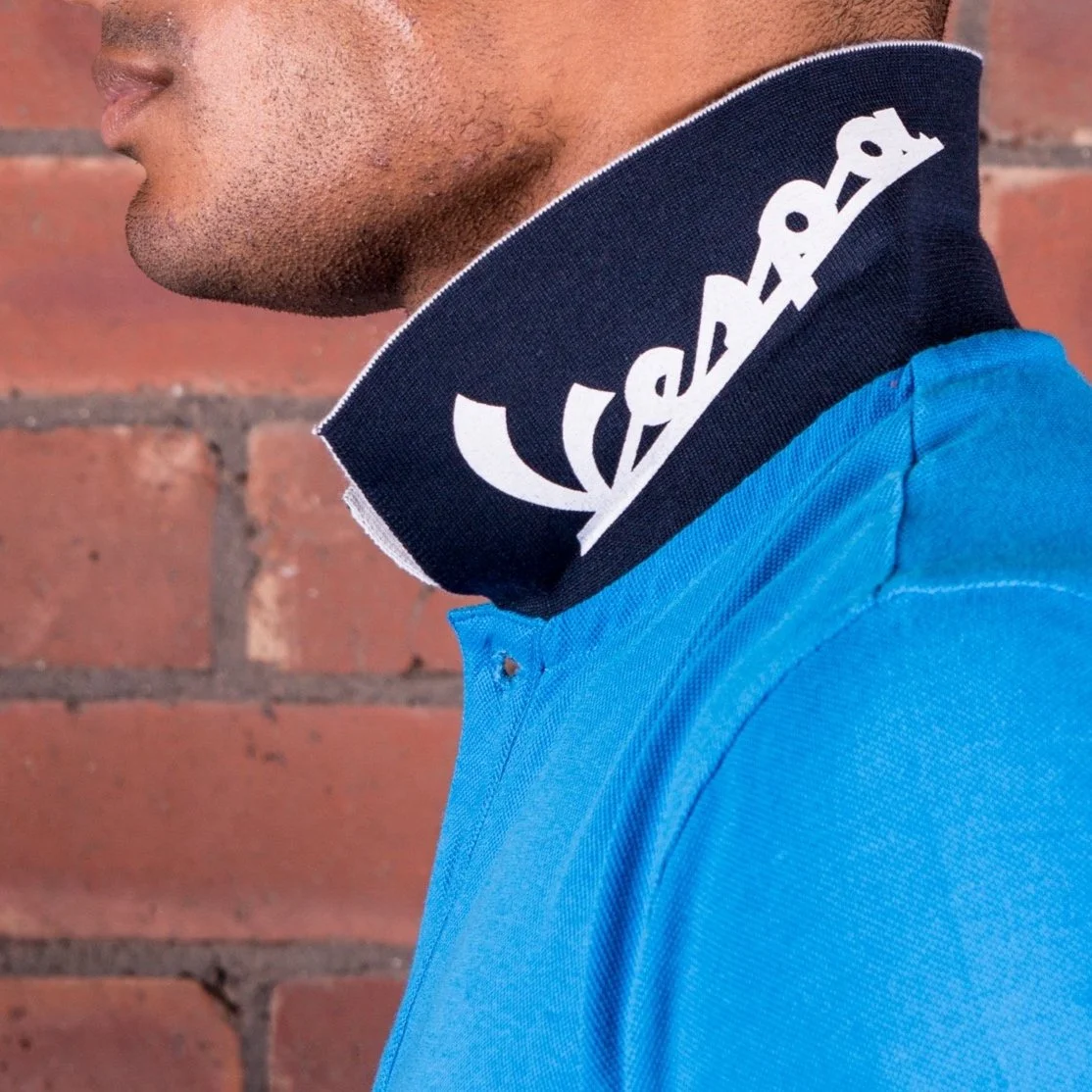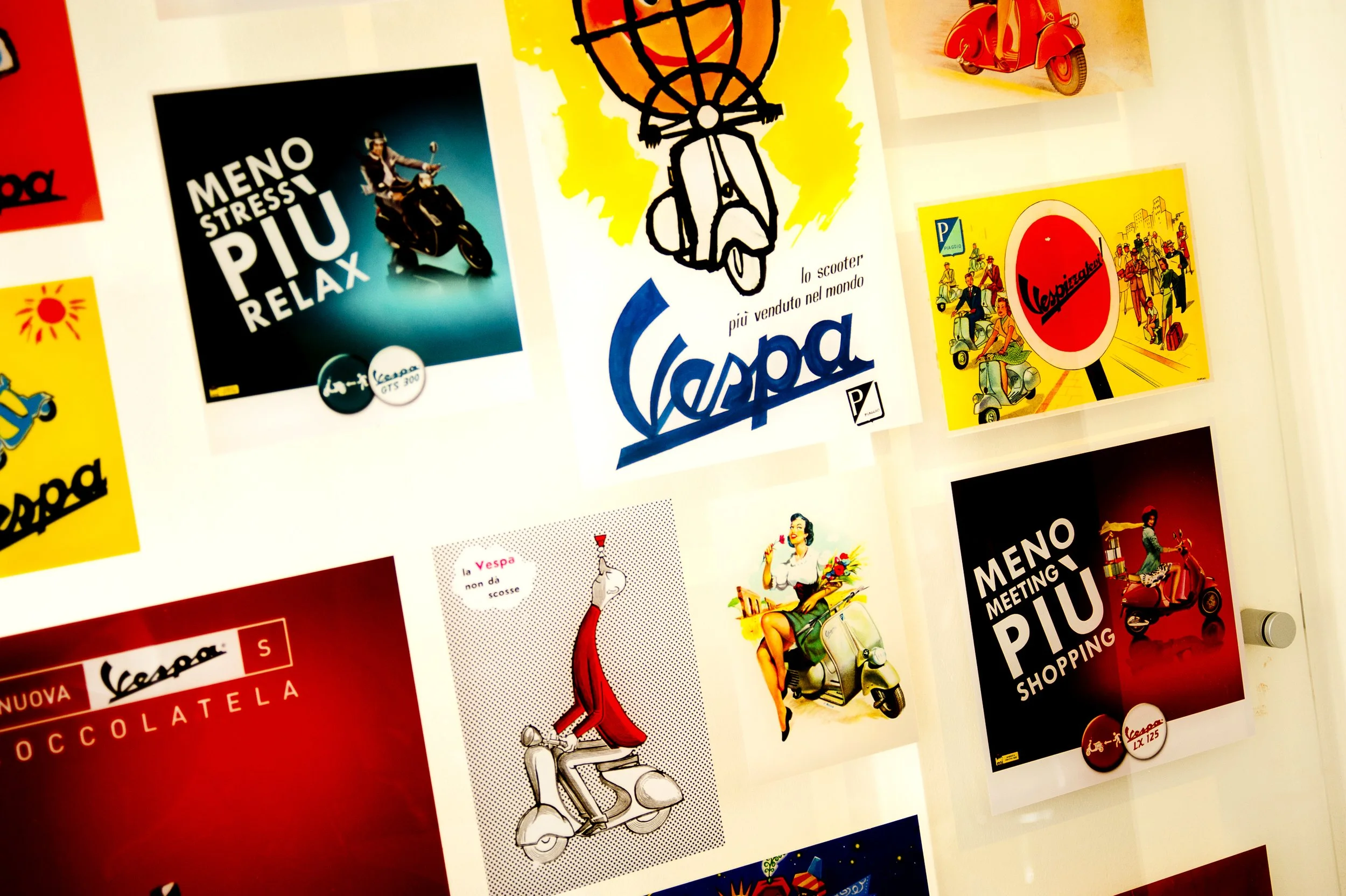
Vespa
Reviving an auto classic for a new generation of style seekers.
Once the byword for Italian chic, Vespa had started to lose its edge in the UK. Sales of new bikes were softening, franchisees needed fresh energy, and the brand risked feeling dated rather than desirable. Our task was to help it reconnect with the next wave of riders.
The brand had begun to skew older and was veering towards hobbyist territory. More middle-aged tinkerer in a shed than the Italian cool that had made Vespa famous. The cultural memory of Audrey Hepburn in Roman Holiday, or the vision of Gwyneth Paltrow whizzing around Capri in The Talented Mr Ripley, felt a long way from where the brand now sat.
Primary market research uncovered two critical findings. Firstly, buyers weren’t really purchasing a scooter, they were buying a fashion accessory. Which made it strange to sell Vespas in out-of-town showrooms next to motorbikes, when they belonged in boutiques on the high street.
Secondly, while most new-buyer segments were shrinking, one was growing fast. Wealthy Chinese students – stylish, brand hungry, blind to the negative connotations and quick to see Vespa as a badge of Western cool – became the primary target, with fashionable young urban professionals as a natural secondary audience.
From this, the brand was repositioned within the fashion space. Customisation, apparel and lifestyle context brought Vespa closer to a wardrobe choice than a vehicle, while revitalised brand codes ensured it still felt unmistakably Italian.
We brought it to life through campaigns across print, digital, in-store experiences and pop-up collaborations in fashion and music. Franchisees shifted their environments to feel less like dealerships and more like boutiques, placing Vespa in the right cultural frame.
The work generated new buzz, lifted consideration with younger audiences, energised franchisee performance and re-established Vespa as the scooter that looks as cool as it feels to ride.






